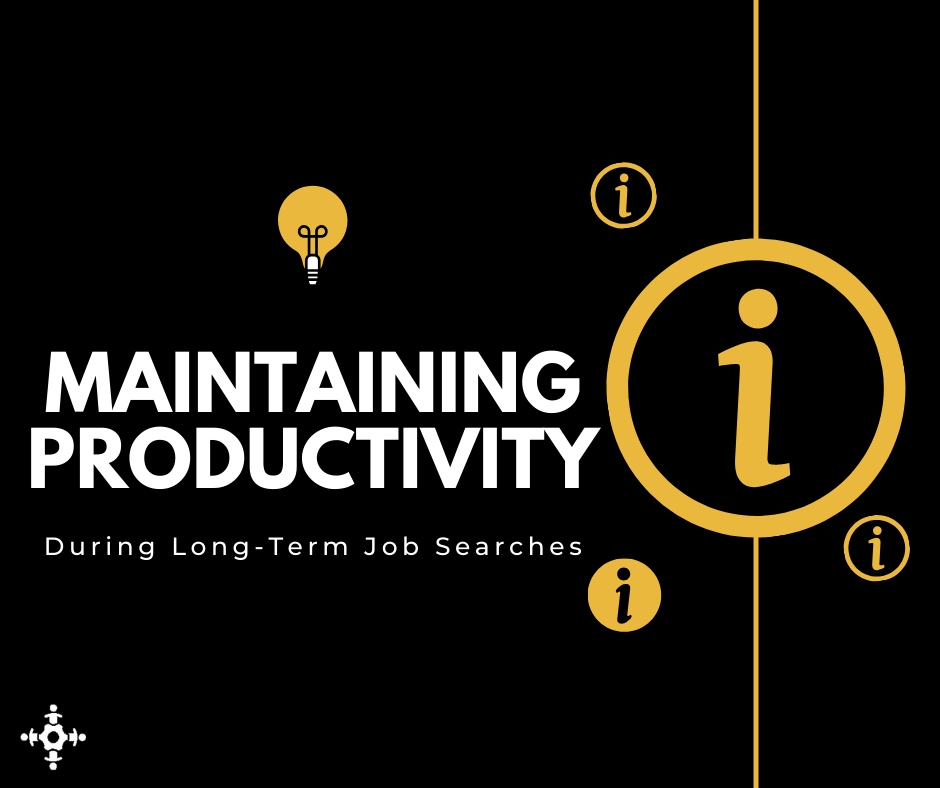Engaging in a prolonged job search can be taxing mentally and physically. Staying productive during this period not only helps you find a job more effectively but also keeps you motivated and reduces the stress associated with long-term unemployment. Here are strategies to maintain productivity and ensure your job search efforts are as effective as possible.
Understand the Challenges
A prolonged job search can lead to job search fatigue, where motivation dips and the daily grind of applying for jobs feels increasingly futile. This can be exacerbated by the isolating nature of the process, especially if most of it is conducted alone at home. Recognizing these challenges is the first step toward managing them effectively.
Strategies for Maintaining Productivity
1. Set Clear, Achievable Goals
Break your long-term goals into smaller, manageable tasks that can be accomplished daily or weekly. This helps to create a sense of achievement and momentum, even when job offers are not forthcoming.
- Example Goals: Set a target to send out three applications per day, connect with two new professionals in your field each week, or dedicate one hour a day to learning a new skill.
2. Create a Structured Daily Routine
Structure your day like a typical workday. Allocate specific hours for job searching, networking, skill development, and breaks. A routine can help you stay focused and prevent burnout.
- Daily Schedule Example:
- 9 AM to 10 AM: Check job boards and emails.
- 10 AM to 12 PM: Tailor resumes and cover letters and send applications.
- 12 PM to 1 PM: Lunch break.
- 1 PM to 3 PM: Networking or informational interviews.
- 3 PM to 4 PM: Skill development (e.g., online courses, reading).
- 4 PM to 5 PM: Exercise or a walk.
3. Keep a Dedicated Workspace
Having a specific area in your home designated as your workspace can help you mentally separate job search activities from leisure activities. This separation can enhance focus during “work” hours and allow you to relax during off-hours.
4. Use Technology and Tools Efficiently
Leverage job search tools and technology to streamline the process. Use job search engines that allow you to filter roles relevant to your skills and preferences and set up alerts to notify you of new openings.
- Helpful Tools: LinkedIn for networking, Indeed for job alerts, Trello or Asana for task management, and Google Calendar for scheduling.
5. Stay Socially Connected
Isolation can be one of the biggest challenges in a prolonged job search. Stay connected with friends, family, and professional contacts. Join job seeker groups, attend industry meetups, or participate in forums to share experiences and get support.
6. Prioritize Physical and Mental Health
Maintain a healthy lifestyle, including regular exercise, a nutritious diet, and sufficient sleep. Consider mindfulness practices or hobbies that reduce stress and improve mental health.
- Activity Ideas: Yoga, meditation, painting, or playing an instrument.
7. Keep Learning and Improving
Use the time during your job search to enhance your qualifications. Attend workshops, take courses, or acquire certifications that add value to your resume and keep you competitive in your field.
- Skill Development: Coursera, Udemy, or industry-specific seminars.
8. Reflect and Adjust Your Strategy Regularly
Assess the effectiveness of your job search strategy regularly. Reflect on what is working and what isn’t, and be ready to adjust your approach accordingly.
- Review Strategy: Monthly reviews of application responses, interview feedback, and networking outcomes.
9. Celebrate Small Wins
Recognize and celebrate small accomplishments to maintain motivation. Whether you master a new skill, make a new professional connection, or land an interview, acknowledging these wins can boost your morale.
In Conclusion
Maintaining productivity during a long-term job search is crucial for success. By setting goals, establishing routines, staying connected, and continuously learning, you can optimize your job search and remain motivated throughout the process. Remember, every step you take is progress, and with persistence and resilience, the right opportunity will eventually come along.

